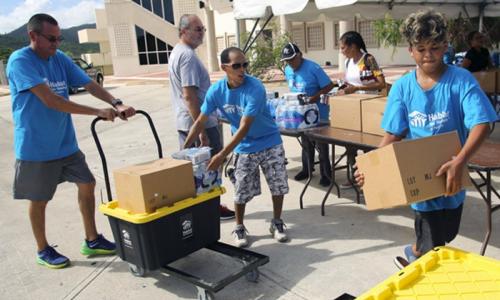Natural Disaster Resources for Schools: Partnering with Multilingual Families

The following resources for schools include ideas for partnering with multilingual families during a natural disaster, supporting families impacted by a global disaster elsewhere, and supporting displaced families who relocate to a new school district. Updates on current crises are also included.
Tips for Schools
The following articles offer multiple tips and resources for schools:
- How Schools Can Partner with ELL Families During Natural Disasters: Learn how schools can partner with multilingual families when preparing for and responding to natural disasters that impact the local community.
- When Your School Community Is Impacted by a Global Crisis: Learn how schools can provide social-emotional support for students who are impacted by crises in other places, such as their countries of origin.
- How to Support Multilingual Families Displaced by a Natural Disaster: Learn how schools can support multilingual families who have been displaced by a natural disaster in another city or country. (This resource section includes examples of community partnerships that supported families following Hurricane Maria.)
- Communicating with ELL Families: 10 Strategies for Schools: Learn how to stay in contact with English learners and their families and how administrators can support that outreach. This article also includes multiple tools, resources, and tips for collaboration.
Current Events
Resources by Topic
Hurricanes
- Helping Children Cope after a Hurricane (American Psychological Association) | Spanish version
- What You Should Know About Hurricanes (The National Child Traumatic Stress Network)
- Talk to Your Kids About Hurricanes (Scholastic Parents)
- What is the difference between a hurricane, cyclone and typhoon? (U.S. National Ocean Service | BBC)
- Remembering Hurricane Katrina: 15 Moving Books for Kids of All Ages (Brightly)
- Recommended Children's Books About Hurricanes (ThoughtCo)
Floods
- What You Should Know About Floods (The National Child Traumatic Stress Network)
Tornadoes
- Tornado Resources (National Child Traumatic Stress Network)
Earthquakes
- What You Should Know About Earthquakes (The National Child Traumatic Stress Network)
- Guidance for School Personnel: Students Who had a Loved One Die in an Earthquake
- Talking to Children about Earthquakes & Other Natural Disasters (American Academy of Child Adolescent Psychiatry)
- Managing Distress About an Earthquake from Afar (American Psychological Association) | Spanish version
Heat Waves
- Extreme Heat: Bilingual Tips to Keep Kids Safe When Temperatures Soar (HealthyChildren.org)
- Heat Wave Safety Tips in 4 Languages (UNICEF)
- Heat Wave Safety (Save the Children)
- Keeping Kids Safe During a Heat Wave (Climate Council Australia)
- School Safety Tips for Heat Waves (LA Parent)
- What to know when your child starts school during a deadly heat wave (CNN)
Wildfires
- Guidance for Staying Safe: Wildfires & Smoke in Multiple Languages (Oregon Health Authority)
- What You Should Know About Wildfires: Bilingual Information (National Child Traumatic Stress Network)
- Wildfire Safety (National Fire Protection Association)
- Wildfire Information (Ready.gov)






